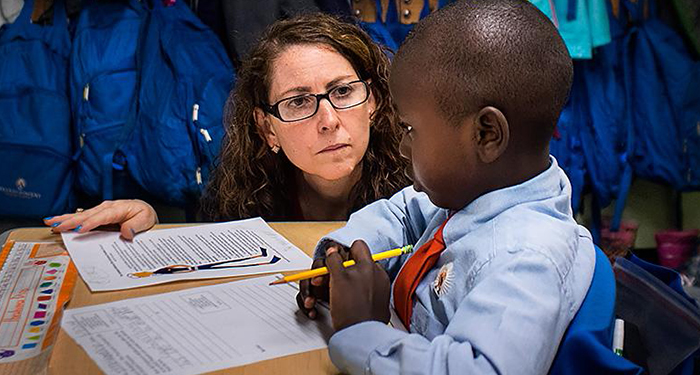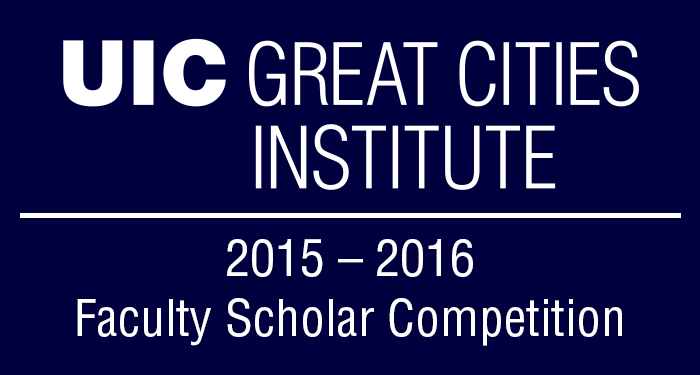UIC’s Great Cities Institute’s presents its 2nd Annual Cities Across the Globe: People and Places Across Borders symposium on April 29th and 30th to address key questions around economic vitality, poverty, space and place, urban development and international trade, transnational migration and settlement, borders, and an array of issues related to the contemporary urbanization dynamics.
Keynoting this year’s symposium opening day, on April 29, at 9:30 a.m., is Diego Aulestia, Minister of International Trade of the Republic of Ecuador. The Minister, whose talk is entitled, Global Exchange: Building Local Economies Through World Trade, will present innovative alternative economic development growth strategies that have been instrumental to the country’s recovery and job creation models and that may be applicable to other nations and local economies. Recognized as a rising international thought leader, Minister Aulestia is a trained economist and recently served as the Ecuadorian Minister of Urban Development and Housing. A panel discussion will follow his remarks.
As part of its mission, the Great Cities Institute will explore the questions of how trade impacts a city’s neighborhoods. Following the Minister’s presentation, a panel, moderated by GCI Director, Teresa Córdova, will consider how nations – and communities – can establish an economic agenda that produces commodities for exportation while bringing capital back into neighborhoods to provide local economic activity. The panelists are:
Laura Ortega-Lamela is executive director of the International Business Council of the Illinois Chamber of Commerce and a partner with Delaney Law, specializing in the intersection of law, business, and politics. As a European Union of Counsel, she is licensed to practice in Europe and has developed in-depth expertise in multiple jurisdictions. Through her experience in international business and consular affairs, Ortega-Lamela has built an extensive network of officials that enables her to serve global businesses both in the United States and abroad. Drawing on her knowledge of common law and civil code legal systems, Ms. Ortega-Lamela has helped a wide range of clients address issues in multicultural, multijurisdictional environments.
As director of international business development, Thomas Bartkoski is responsible for attraction of foreign direct investment (FDI), general business development, and international marketing. He assists foreign-based firms location evaluation and site selection, and works closely with the foreign-based business community in Chicago and the local Consular and foreign economic development communities. Bartkoski introduces the area economy and business environment to foreign business and public-private delegations. He has two decades of private, public and not-for-profit sector experience in the economic development field.
Raul Raymundo grew up in Pilsen and has long understood the challenges and strengths of working-class and immigrant families. In 1990, with the help of six Catholic parishes, he co-founded what is now known as The Resurrection Project (TRP) to ensure that Pilsen built on its assets to address its many challenges. Under his leadership as executive director for more than 20 years, TRP has seamlessly blended community development, community organizing, human service delivery, and advocacy to build vibrant, healthier and involved communities.
At the Hull House, On Thursday, April 30, beginning at 8:30 a.m., Great Cities Institute will continue the Cities across the Globe event with an all day symposium, highlighting scholars from Africa, The Americas, Asia, Australia, and Europe, along with UIC scholars. Among those participating in the symposium includes:
Joseph Bangura, West Africa
“The Evolution of Irrigation Urban Landscapes of the American Southwest” Moises Gonzalez, New Mexico
“Welfare Asssemblage: Politics, Methodology, Analytics” Ian McGimpsey, University of Birmingham
“Red Earth Realities and Blue Sky Thinking: Frontiers of Mining, Governance and Community in Western Australia” Clare Mouat, Australia
“Responsible City: Corporate Social Responsibility and Cities in Turkey, Europe, Middle East and West Asia” Ali Ercan Özgür, Istanbul, Turkey
“The Concept of Commons in the Rio Grande Watershed” José Rivera, New Mexico
“Disassembledge in Russia: How Buryats Reconstruct Through Time and Space” Elizabeth Sweet, Temple University
“Cities of Outraged: A Proposal to Analyze the Metropolises in the Early Twenty-First Century” Claudia Villegas, Mexico City
Francisco Uviña, New Mexico
“Welfare Asssemblage: Politics, Methodology, Analytics” Deborah Youdell, Birmingham, UK
UIC Scholars:
“Contemporary Urban Design in Chinese Cities” Tingwei Zhang
Ivan Arenas
Xochitl Bada, Discussant
“Trans-Urban Imaginaries in Asia: Mumbai Taxis/Singapore Style” Tarini Bedi
John Betancur, Discussant
Andy Clarno, Discussant
Teresa Córdova, Convener
Glenda Garelli, Discussant
Tim Imeokparia, Discussant
“Tahrir Square, Cairo and the Making of the Egyptian Revolution of 2011” Atef Said
“Out of Mogadishu: Post-Cold War Diasporas, ‘Second Life’ and Community in Chicago” Lynette Jackson
We welcome your participation at both events.
RSVP today for what is sure to be a very exciting time. For more details on the symposium, visit our event page or view the full program.

